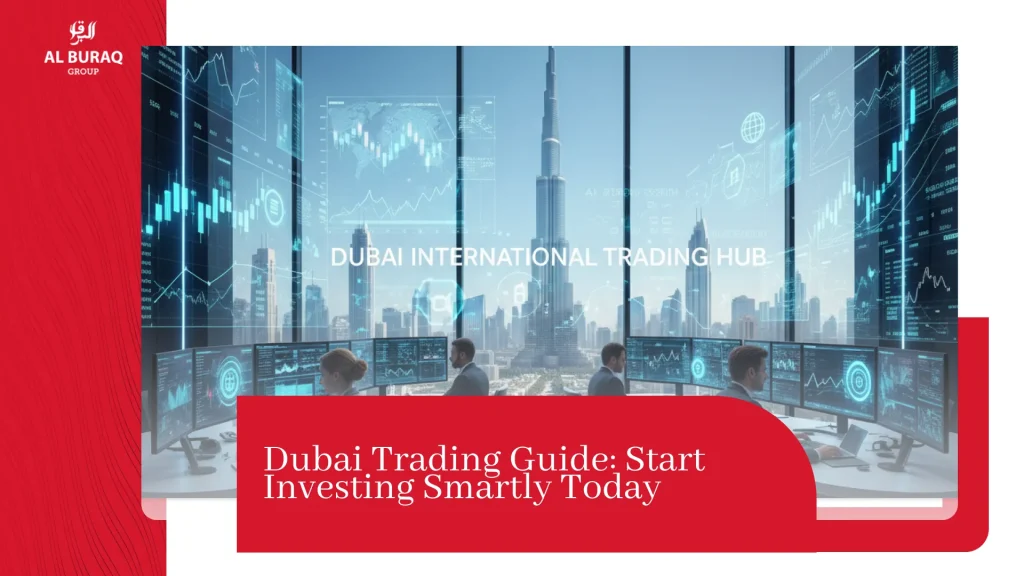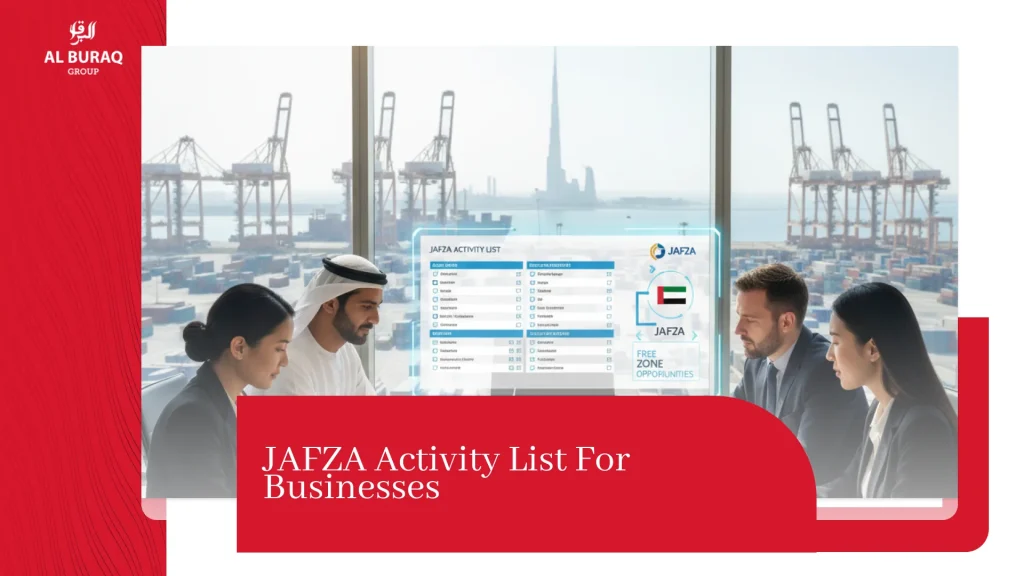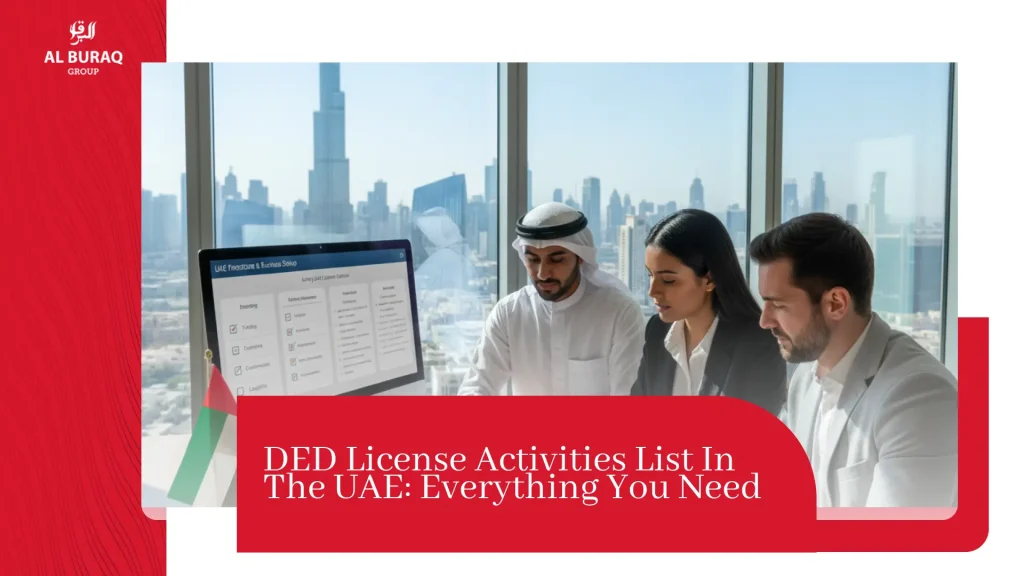People often think of Dubai as a way to upgrade their lifestyles. Behind the glamour lies something more powerful. Dubai is positioning itself as the trading hub in the world. Trade in Dubai has become a magnet for global entrepreneurs eager to grow their wealth. They are seeing it as a hidden gem that is filled with progressive economy, financial infrastructure, and open-door policies for investors. By looking at these benefits, no one resists themselves to tap into the market that offers only lucrative perks.
Curious about how to trade in Dubai? You’re in the right place to get detailed information. This guide helps you to which category benefits you the most. From stocks, bonds, commodities, to other instruments. Keep reading and discover everything you need to know. At the end of the blog post, you’ll be fully aware of the trade requirements and markets to strategies that set you up for success.
Why Choose Dubai for Trading?
Dubai isn’t just another business city. The city is a carefully designed ecosystem built for traders. Here’s what makes it unique:
- A Strong, Diversified Economy
Over 70% of the UAE’s GDP comes from non-oil sectors. Sectors like tourism, logistics, real estate, and finance fuel growth. Investors gain access to a stable and expanding market. - Tax Benefits
There is no personal income tax involved if you trade. A 5% VAT applies to most goods and services. It is most attractive for traders to maximize returns. - Global Accessibility
Dubai connects East and West. This makes it an ideal hub. Especially for cross-border transactions. Time zone overlaps with Asia, Europe, and others. It is perfect for global markets. - Investor-Friendly Laws
As a trader, you may enjoy 100% foreign ownership in many sectors. The processes for company registration and trading are also simplified.
Financial Markets in Dubai
Planning to trade in Dubai? Then, you’ll likely engage with the city’s well-regulated financial markets. We have compiled a list below for your better understanding. Find out what those vital financial markets are:
1. Dubai Financial Market
Dubai Financial Market, also called DFM, was established in 2000. The market focuses on UAE-based companies. They offer stocks, Sukuk, ETFs, and derivatives. Popularly known worldwide for its transparent and investor-friendly practices.
2. Nasdaq Dubai
Nasdaq Dubai operates under global standards. The market is open to both regional and international investors. They allow trading of international equities, bonds, and derivatives. Undoubtedly, a perfect choice if you want exposure beyond UAE-based companies.
3. Popular Indexes
DFM General Index tracks overall UAE stock performance. In comparison, DFM Shariah Index (DFMSI) is for Islamic-compliant investments. The UAE ESG Index (UAEESGI) is focused on sustainable and ethical businesses.
Basic Requirements Before You Start Trading
Trading in Dubai isn’t complicated. All you need to know are the essentials to set up. The following are the key requirements to start trading in Dubai today:
- Get a National Investor Number
NIN is a mandatory ID to trade in Dubai. It can be obtained via the DFM or iVesrtor App, a broker’s app, or by visiting their branch. - Open a Trading Account with a Licensed Broker
You can choose a trading account from brokers authorized by DFM. Compare services, technology platforms, and fees by using this account. Make sure that they provide access to online trading and real-time data.
How to Trade in Dubai
Want to know the step-by-step procedure to trade in Dubai? Here’s a simplified roadmap to kickstart your trading journey:
Step 1: Apply for Your Investor Number (NIN)
The DFM App offers the fastest way to apply for an investor number. It takes only minutes to process. Dubai CSD Help Desk is a paper-based or electronic application. Another way is via a broker, where your authorized broker handles the paperwork.
Step 2: Select the Right Broker
When choosing a broker, check the services offered. Including equities, margin trading, and derivatives. Must evaluate technology in terms of user-friendly platforms and real-time updates. Understanding fee structures is also important. Consists of transaction charges, account maintenance costs.
Step 3: Fund Your Account
Now it’s time to deposit money into your trading account. The minimum investment varies by broker.
Step 4: Start Trading
You can use the DFM and Nasdaq Dubai platforms for real-time trading. Decide from stocks, ETFs, derivatives, Sukuk, or bonds.
Trading Options Available in Dubai
Dubai’s markets are diverse, giving investors multiple opportunities. Below is the breakdown of the main ones:
- Equities (Stocks)
Equities or stocks of over 100+ listed companies. It covers industries like banking, real estate, logistics, and telecom. - Derivatives & Futures
Derivatives and futures are ideal for experienced investors. They protect against price fluctuations and offer portfolio diversification. - Exchange-Traded Funds (ETFs)
The exchange-traded funds are low-cost, liquid investment options. They track indexes or commodities. - Sukuk & Bonds
Sukuk and bonds offer safe and steady returns. DFM lists both Islamic Sukuk and conventional bonds.
Tips for Successful Trading in Dubai
New to trading? Then, these tips can help you minimize risks and maximize gains:
- Stay Informed
- Use the DFM App for real-time data.
- Follow financial news to understand market trends.
- Diversify Your Portfolio
- Don’t rely on a single sector.
- Balance between equities, bonds, and ETFs.
- Work with a Reputable Broker
- Choose brokers with strong track records.
- Ask about hidden fees before signing up.
- Start Small
- Begin with smaller investments.
- Scale up as you gain confidence.
Common Mistakes to Avoid
Even though Dubai makes trading simple, beginners often make errors. It’s wiser to take preventive measures than regret later. Avoid these common pitfalls for a safe trade:
- Jumping into the market without a clear plan.
- Ignoring fee structures when choosing brokers.
- Following trends blindly instead of doing research.
- Putting all capital into a single stock or asset.
Why Trade in Dubai Over Other Cities?
Dubai often leads other destinations. Confused why it’s so? Here’s how Dubai outshines other trading destinations:
| Feature | Dubai | Other Markets (General) |
| Taxes | No personal income tax | Taxes often apply |
| Accessibility | Global connectivity, strong time zone advantage | Limited reach |
| Ownership | 100% foreign ownership possible | Restrictions in many countries |
| Regulations | Transparent and investor-friendly | Can be complex or outdated |
Tracking and Managing Your Investments
After you begin trading, it’s almost mandatory to perform the following tasks on a daily basis.
- Regularly monitor your portfolio performance.
- Reassess your investment strategy every few months.
- Use apps and platforms for real-time alerts.
Conclusion: Dubai as Your Gateway to Trading Success
In conclusion, Dubai has constantly proven itself as more than a tourist paradise. You can call it a global powerhouse for trade and investment. Trade in Dubai opens doors to countless opportunities without a doubt. The strong financial markets and low taxes are the biggest reasons. A welcoming environment for foreign investors increases its worth more.
Now that you know how to trade in Dubai, the next step is to put this knowledge into action. You can start small with equities or dive into derivatives and ETFs. Each of Dubai’s trading landscapes is designed to support your growth.
Ready to begin? Get your Investor Number and pick a broker. Let’s step into one of the most vibrant trading markets in the world.
Contact Al Buraq to get end-to-end help! Their consultants are more than happy to assist you in starting your trading journey today in Dubai.



